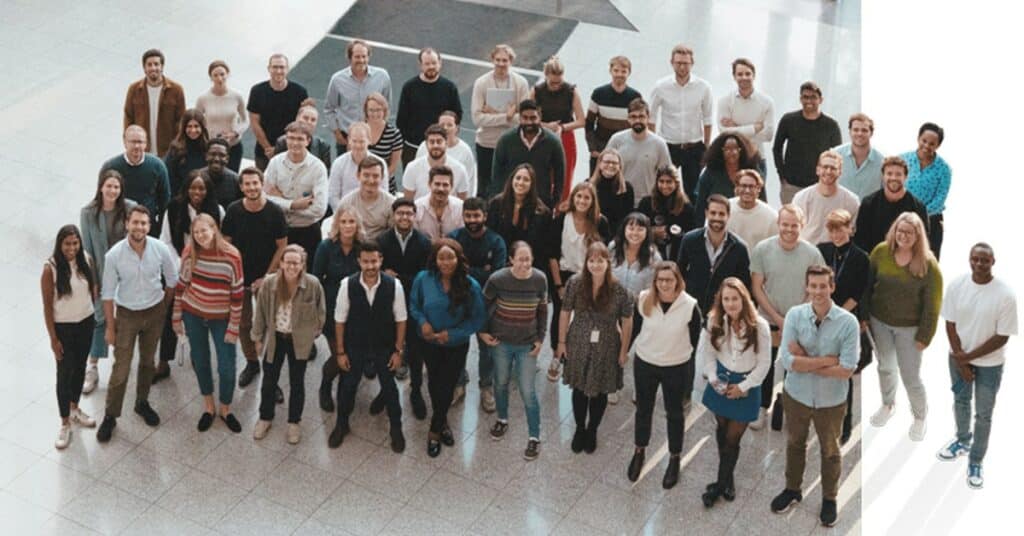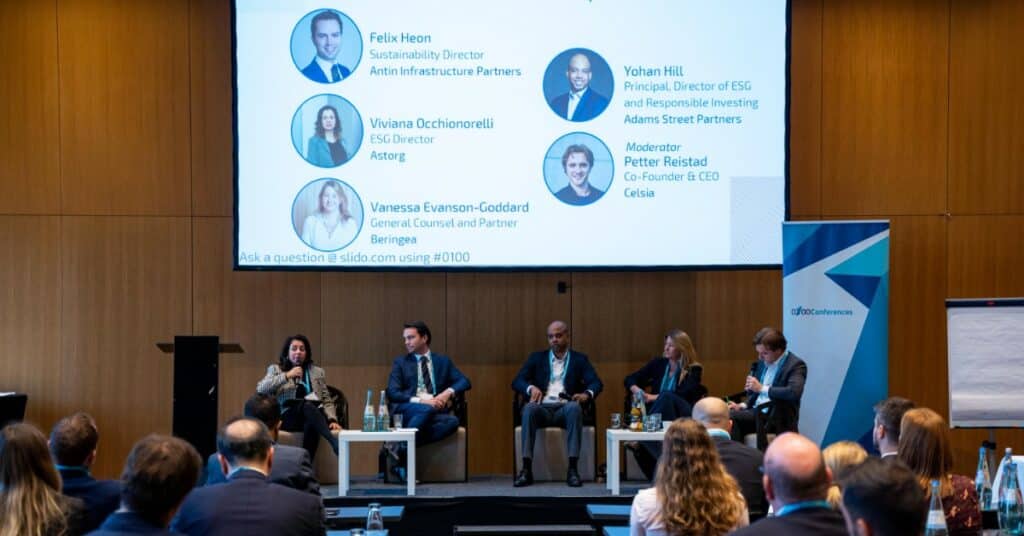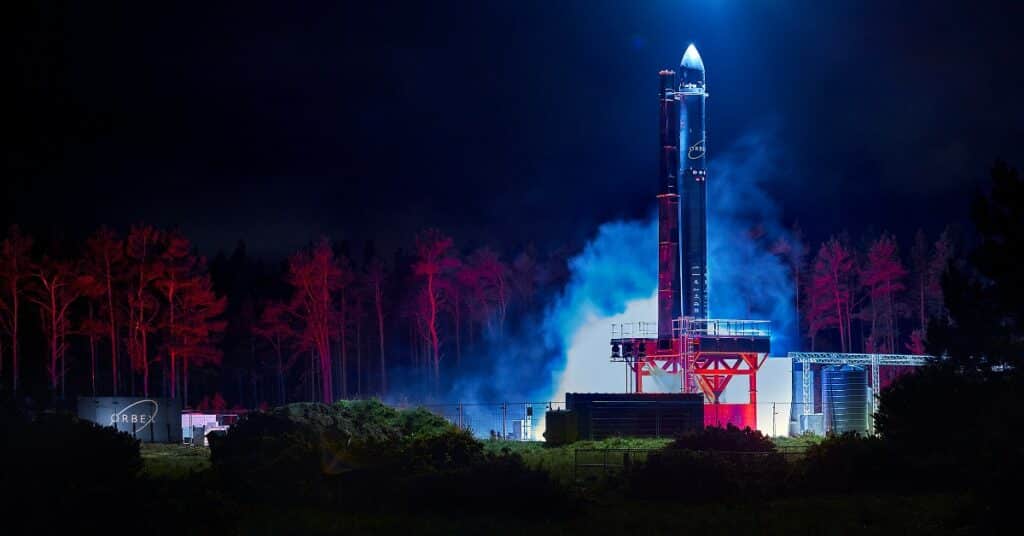While IBM and Google quibble over qubits and Tesla aims to replace every human on its factory floor with a robot, there is a major reckoning happening for the deep tech industry.
If 1995 was a watershed moment for PCs and 2007 for smartphones, then 2023 could be the one for deep tech startups.
The latest developments in the field of quantum computing, artificial intelligence (AI), robotics, and blockchain shows that high tech innovation in engineering is real and startups in this field have been thrust into the centre stage.
Not many have a front row seat to the beginning of this technology consumer wave like the way Rubina Singh does.
As a specialist in sustainable technologies, Singh is a Principal in the deep tech team at Octopus Ventures, leading on early-stage investments in deep tech enabling a sustainable planet.
She got her start at Fraunhofer working as a solar engineer before heading up Fraunhofer TechBridge. She also established and led the innovation division at British Gas and the net-zero strategy at Centrica Ventures.
As an advisor to the European Innovation Council and the Solar Impulse Foundation, Singh has seen the acceleration of sustainable deep tech development and commercialisation, and thinks there is a need to do a lot more to overcome multiple crises.
Need to overcome multiple crises

“Today, we are in the midst of multiple crises,” she says before explaining the need, “to tackle climate change, to make energy secure, to overcome food, water and resource constraints with a growing global population.”
As a solar engineer, Rubina Singh initially developed “novel bifacial solar cell” invented at the Australian National University and then at Fraunhofer.
She got to work with several innovative solar and battery startups but also found that “many of these promising technologies never crossed the valley of death.”
There was an intrigue that motivated her to see where the gaps were before zeroing in on the fact that investing in early-stage deep tech was seen as too risky and the lack of a cross-sector ecosystem to support the development and scaling of these technologies.
This understanding got her started on investing in deep tech. According to BCG, the global investment in deep tech has grown from $15B in 2016 to more than $60B in 2020. The UK has seen deep tech investment grow by 33x over the past decade, surpassing $8.5B in 2021.
She adds, “We need to do a lot more, not least of which is investing and supporting the growth of hardware technologies and integrated platform technologies, in addition to software where a large share of funding is currently going.”
Apart from investing, there has also been a major growth in the number of players entering the deep tech market to support startups.
Quantum Delta NL, a foundation focused on developing the Dutch quantum technology ecosystem, announced a new €15M fund to support early-stage startups yesterday.
It is evident that deep tech is attracting investment and players in the same way that Web 2.0 startups did a few years back.
As an early investor in deep tech, she says now is the time to focus on “bringing together an integrated and well-functioning ecosystem around deep tech/cleantech for accelerating from lab to market.”
Software doesn’t eat the world

With all the chatter around OpenAI’s ChatGPT and it being embedded into everything from search to social, Singh agrees that a lot of investment in deep tech has traditionally been in software.
She says, “This has been a trend in deep tech too with a large share of investments going into AI/ML.”
However, she is seeing a trend where investors and inventors are realising that software alone can’t address the aforementioned crisis.
She feels there is a need for new materials, hardware, and integrated hardware and software platforms to truly achieve success with deep tech. This transformation is also reflected in the funding world.
According to the EIC Scaling up Programme’s Top50, deep tech startups received €527M in funding over the past 12 months and a total funding of €1.8B to date.
Singh adds that the biggest funding went to a quantum hardware, electric vehicle, and photonics based companies. This shows the growing interest across hardware and technologies enabling energy transition.
This philosophy also reflects in deep tech investments from Octopus Ventures. As a multi-stage European VC, Octopus exited SwiftKey and WaveOptics when they were acquired by Microsoft and Snap, respectively.
The current portfolio of deep tech startups backed by Octopus Ventures includes fruit picking robots to address labour shortage and a startup developing high performance infrared sensors.
“We still need significantly more investment at all stages, especially early-stages to get promising deep technologies to the market that will help address the global challenges we face,” she says.
An emerging deep tech market
Europe may have missed the boat when the technology transition happened from personal computers to mobile computing. However, it doesn’t want to miss out on deep tech.
According to BCG, the deep tech investments have seen an annual growth rate of 50 per cent across Europe. Singh says the Netherlands along with the UK, France, and Germany are leading this growth.
She says, “Deep tech has become a hot topic in Europe, with hopes that the region can have an edge over the rest of the world for innovation rooted in fundamental research.”
Europe also has a huge untapped potential thanks to a large number of leading universities working on innovative research.
Next, Singh says, “we need to work on developing a strong and effective ecosystem that successfully helps commercialise and grow potentially game changing deep tech.”
In Europe, the Netherlands has emerged as an unsung hero with its adoption of AI to enable sustainable infrastructure, and mobility.
Singh is excited to see the deep tech startups from Amsterdam and the Netherlands in e-mobility and clean energy.
“A few years ago new and second life EV batteries were used to power the Amsterdam Arena and provide vehicle-to-grid services, which was a pioneering project in its area,” she says.
Electrification of urban mobility is key to lowering the associated GHG emissions, says Singh and adds, “I have seen quite a few innovative research projects and startups from the Netherlands in these areas.”
Driving sustainability at 0100 Conference

Rubina Singh will be one of the leading speakers at the 0100 Conference Europe being held in Amsterdam from March 28 to March 30.
She wants to use the platform to drive the need for investors to bring about an ecosystem together that allows deep tech startups to not only thrive but also innovate.
“Conferences like 0100 are a fantastic way of meeting LPs and other co-investors and partners,” she says. “I believe that developing and successfully scaling innovative deep sustainable technologies need both funding at each stage of a startup’s journey as well as a strong ecosystem of players across industries and investors to support them.”
She wants to drive support towards startups like Origami Energy, one of the investments from Octopus, that has developed an independent energy data platform to accelerate the green energy transition.
She says the technology developed by Origami Energy will play a crucial role in maximising the potential of distributed energy assets to contribute to managing energy supply, and demand. The underlying technology will enable integration of distributed renewables, EVs, and batteries.
“We are keen on finding and supporting early-stage deep tech enabling a sustainable planet,” she says.
Apart from advocating for more investment in deep tech and creation of a strong ecosystem, she wants to see VCs, GPs, and LPs focus on how they are thinking of driving sustainability through their investments.
Intersection of deep tech and sustainability

As a champion of sustainability, Singh wants the innovation to now shift towards the intersection of deep tech and sustainability.
She says deep tech is crucial to address 21st century challenges and leave behind a sustainable world.
As a multi-award winning leader in net-zero technology and most recently recognised with the Innovator Award 2022, Singh has clear priorities when it comes to innovation in deep tech and sustainability.
She says the first area of innovation should come in the form of decarbonisation solutions for energy and transport.
Even though solar and wind energy has matured, she expects to “see significant advancement in batteries, low-carbon heat technologies, low carbon fuels for heavy duty transport, and sustainable aviation.”
Second area of innovation will be increased innovation in biomimetic technologies and nature based solutions for sustainable packaging, self cleaning construction materials, and bioenergy based carbon capture and sequestration.
Last but not the least important is the need to see more innovation in deep tech focused on decarbonising hard-to-abate sectors such as steel and cement production.
“Deep tech has the potential to completely transform how we live and do things while making lives better and contributing to a green and sustainable future,” she beams.










01
From telecom veteran to Dutch Startup Visa success: The Jignesh Dave story